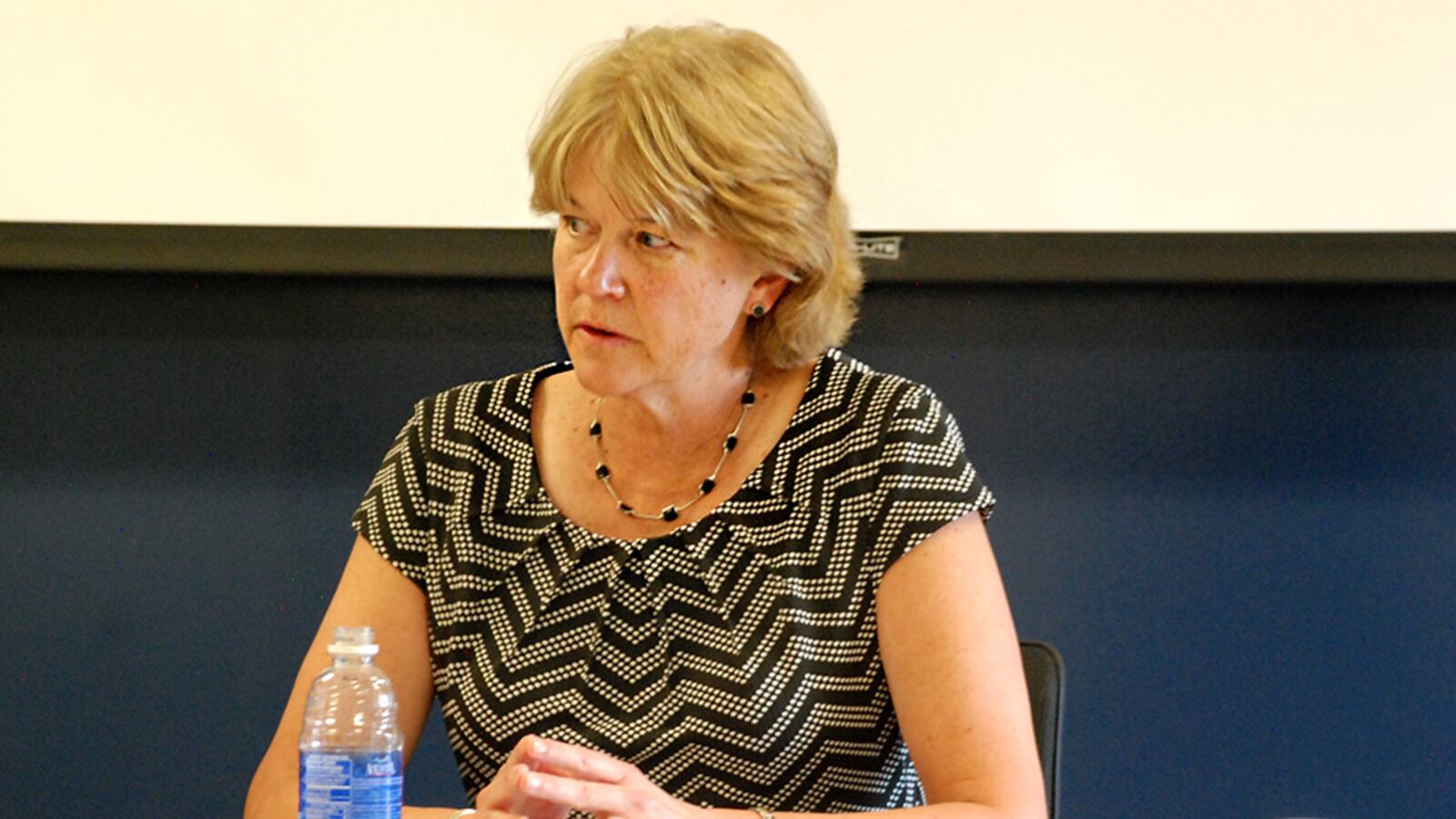Stating that the vetting process of applicants for a vacant Denver school board seat was “not complete” before the board made its pick, the board president said Monday she would move quickly but carefully in making the appointment herself after the board’s first choice withdrew.
MiDian Holmes was appointed last Tuesday but announced Thursday she would not accept the position after details of a decade-old misdemeanor child abuse conviction came to light.
State law gives school boards 60 days to fill a vacancy. If that doesn’t happen, the board president is tasked with appointing someone. Monday was the 60th day since former board member Landri Taylor resigned, leaving the seat representing northeast Denver vacant.
Board president Anne Rowe said she would likely choose from the finalists who received votes last Tuesday. There were two rounds of voting. In the first round, five finalists got votes: Holmes, Jennifer Bacon, Rachele Espiritu, Dexter Korto and Makisha Boothe.
Initially, 22 candidates applied to finish out Taylor’s term, which ends in 2017. The application stated that candidates may be subjected to a background check.
District spokeswoman Nancy Mitchell said last week that Holmes’ 2006 child abuse conviction was unearthed in a standard criminal background check and shared with board members.
The district has declined to answer further questions about what the vetting process involved.
Holmes said she contacted the district to explain that her conviction stemmed from her 2-year-old daughter wandering out of their apartment and the police being called. Rowe said board members knew about the conviction and Holmes’ explanation before appointing her.
But two days after Holmes was appointed, court documents obtained by Chalkbeat revealed Holmes pleaded guilty to child abuse after police discovered her three young children — ages 7, 6 and 2 — were home alone for more than eight hours while she was at work.
Rowe said Monday she believes that while the appointment process was “incredibly transparent” and public, “the vetting of the applicants was not complete and the board did not have all the information” when it voted.
Now that the appointment is up to her, Rowe said she wants to “ensure that time is taken to do the vetting properly” and to “reflect on this appointment and make the best decision possible.” However, Rowe made clear she doesn’t want to take too much time, either.
The board will call a special meeting, at which she will announce her pick, Rowe said.
The board has been criticized for a lack of transparency in the appointment process. Six Denver Public Schools employee unions, including the Denver Classroom Teachers Association, issued a statement last week calling on the board “to be more accountable to the community.”
“Our school board is tasked with representing the interests of our community,” it said. “We are troubled that the six board members only released details about the appointment process after open records requests were filed and failed to make the public aware of Ms. Holmes’ history.”
DPS did not reveal anything publicly about Holmes’ conviction until several media outlets ran stories about her record. The district did not reveal which board members voted to appoint her until 48 hours after the vote, in response to an open records request from Chalkbeat.
On Monday, a few protesters stood outside the building where the board was meeting.
“This makes our school board look incompetent,” said Jose Silva, a former DPS school board candidate who was one of the 22 people who applied to fill the vacancy.
The board initially narrowed the 22 applicants to 10 finalists, one of whom withdrew. Last Tuesday, members met to make the final appointment. A first round of voting whittled the field of nine down to three: Holmes, Bacon and Espiritu.
The six board members voted again. Four members — Rowe, vice president Barbara O’Brien, treasurer Mike Johnson and board member Lisa Flores — voted for Holmes.
Board secretary Happy Haynes and member Rosemary Rodriguez voted for Bacon, who works as regional director of Leadership for Educational Equity, an organization that aims to help Teach for America alumni become community leaders, and volunteers as the board chair of Padres & Jovenes Unidos, an advocacy group that has been critical of some DPS policies.

